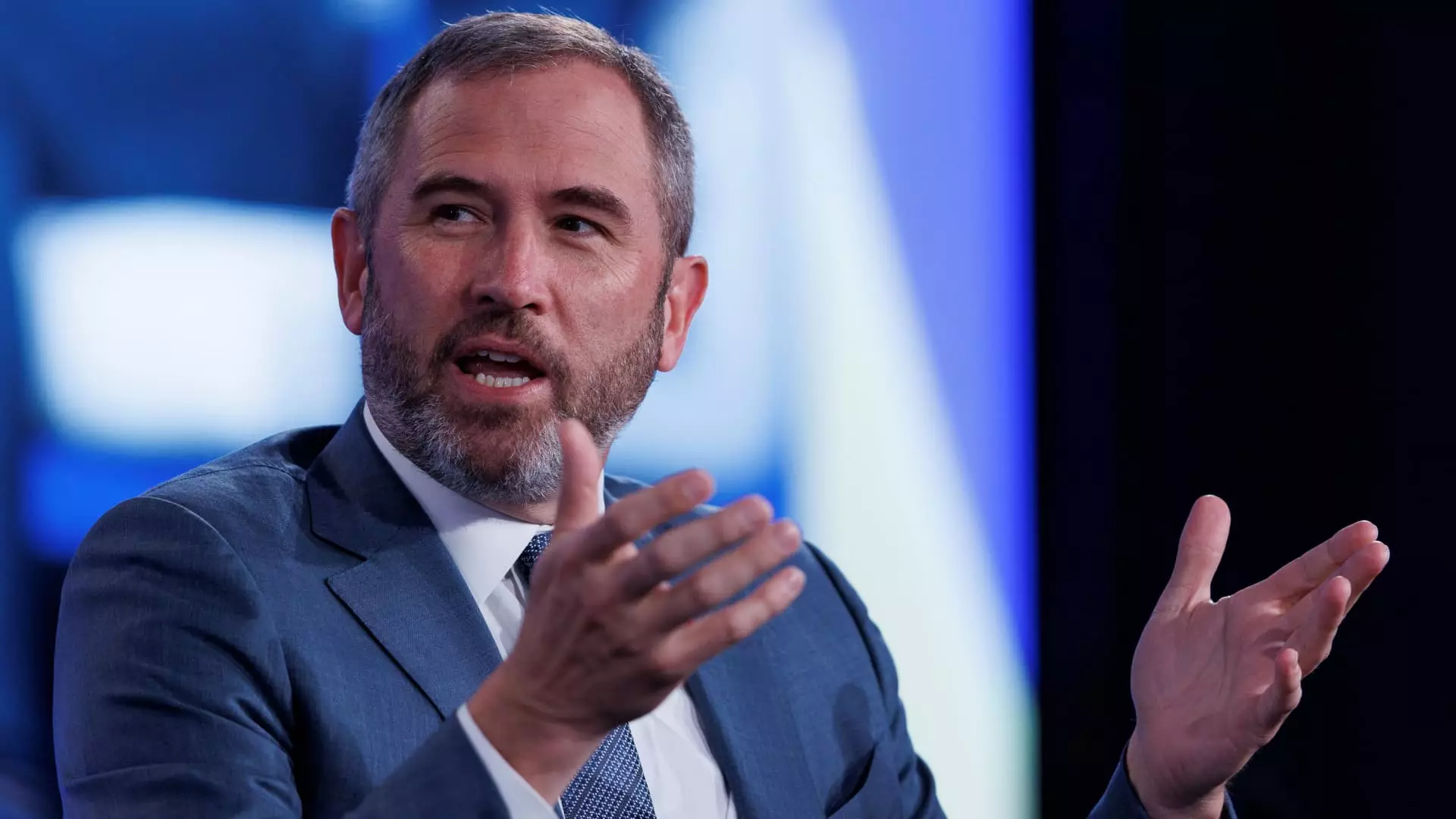In recent discussions spotlighting the evolving cryptocurrency landscape, Ripple Labs CEO Brad Garlinghouse expresses compelling optimism for the future of crypto regulation in the United States. While historically skeptical of the governmental approach towards cryptocurrencies, Garlinghouse holds an encouraging outlook amidst the anticipated political shifts following the upcoming elections. This article delves into his insights while evaluating the broader implications for the crypto industry, especially in light of Ripple’s ongoing challenges and achievements.
In a conversation with CNBC during DC Fintech Week, Garlinghouse articulated that the forthcoming election may redefine the regulatory framework for cryptocurrency in America. He described this as “the most important election we’ve had,” underlining the significant potential for establishing a more innovation-friendly Congress. The injection of pro-crypto perspectives into policymaking could be transformative, helping the industry navigate rigorous hurdles that have stifled progress.
Ripple, primarily known for its association with the digital asset XRP, has established a global payment infrastructure predominantly serving banks and financial institutions. Notably, around 95% of Ripple’s business operations occur outside the U.S. This international focus stems from historical challenges, encapsulating regulatory turbulence that has characterized the crypto sector in its home nation. The SEC lawsuit against Ripple reflects the contentious atmosphere that has pushed startups and established firms alike to consider operating outside American borders, as Garlinghouse advised fintech newcomers to do.
Despite the turbulent regulatory environment, Ripple achieved a landmark victory when a judge ruled that XRP is not classified as a security for retail investors on exchanges. This ruling not only vindicated Ripple but also bolstered the industry’s standing as it grapples with regulatory scrutiny. Garlinghouse asserts that the prevailing sentiment is one of optimism as industry stakeholders collectively believe that the inevitable adjustments on the political front will usher in a more favorable climate for innovation and growth.
Garlinghouse’s perspective seems to suggest that while the U.S. may lag in setting clear regulations, the crypto sector will emerge stronger from the turmoil. He argued, “Anyone who doesn’t believe that no matter what, we’re going to end up in a better place, is not paying attention.” This resilience theme signals that industry players see the current regulatory landscape as a transitional phase leading to broader acceptance and integration of cryptocurrency into the financial ecosystem.
Recognizing the intricate interplay of politics and business, Ripple has invested significantly in political channels advocating for crypto-friendly policies. With contributions exceeding $45 million to Fairshake, a political action committee focused on pro-crypto agendas, Ripple demonstrates its commitment to shaping the dialogue around cryptocurrency regulation. Garlinghouse’s recent donation, alongside co-founder Chris Larsen’s sizable contributions, highlights their strategic approach to navigating political terrains.
The political sentiment surrounding cryptocurrency is increasingly partisan, a shift from the previous bipartisan support witnessed in Congress. Garlinghouse has highlighted concerns regarding the potential implications of a Kamala Harris-led administration for the crypto industry, citing a perceived hostile approach from current governmental factions like the SEC and the Office of the Comptroller of the Currency. This apprehension regarding Harris’s stance on technology raises questions about how friendly the next administration will be toward crypto innovation.
Despite the divisions in political support, Garlinghouse remains focused on the inevitability of a regulatory reset, stating that the Biden administration has taken a predominantly “hostile” approach to crypto issues. With terms like “Operation Chokepoint 2.0” surfacing in discussions, industry experts fear a gradual constriction of financial services available to crypto businesses. This concern pushes many stakeholders to advocate for clearer guidelines that ensure fair access to banking services while maintaining regulatory oversight.
As Ripple and the broader crypto industry prepare for a possible political transformation, the emphasis on innovation and systematic legal reforms is crucial. Whether through a reimagined Congress or a more supportive executive branch, the industry stands at a crossroads that may dictate its trajectory for years to come.
As Garlinghouse looks ahead, his confidence resonates with peers in the sector. If the forecasts for a pro-cryptocurrency political landscape are realized, the opportunities for growth and acceptance of digital currencies could herald a new era for Ripple and other innovators in the blockchain space. The next election could indeed be a turning point, but it is the industry’s resolve to adapt and advocate that will define its future in an evolving regulatory environment.

